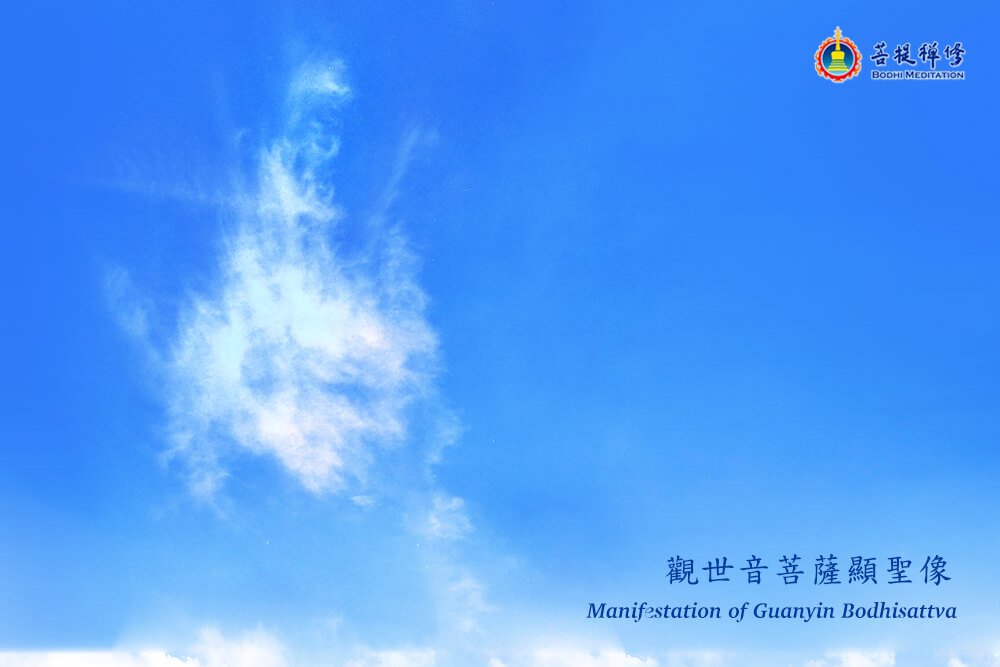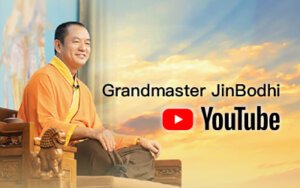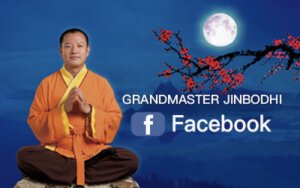
Guanyin Bodhisattva is one of the most famous bodhisattvas in Buddhism. She is all-compassionate, having pity and mercy on all living beings, saving the suffering upon hearing their calls with immeasurable manifestations to eliminate calamities. What are the other names of Guanyin Bodhisattva in different parts of the world and among different religions and sects? What does Namo Guanshiyin Bodhisattva mean? What is the karmic connection between the contemporary meditation Grandmaster JinBodhi and Guanyin Bodhisattva? This article will tell you the enlightenment story of Guanyin Bodhisattva, and you will know more about her!
The folk belief in Guanyin Bodhisattva
The compassionate image of Guanyin Bodhisattva is deeply rooted in people’s hearts and widely accepted and believed by the people. Almost all the Buddhist temples worship Guanyin Bodhisattva in the provinces Jiangsu, Zhejiang, Fujian, Guangzhou in China, and the overseas Chinese in Southeast Asia. “Amitabha is in every family, and Guanyin is in each household” is to describe the popularity.
Also, in different religions or schools, Guanyin Bodhisattva is often worshiped but in other names. In Taoism, she is called the True Divinity of Mercy, in Yiguandao, is called Nanhai Ancient Buddha, in Lingshan, is enshrined as one of the “Five Mothers.” The schools of Longhua, Qi, and Gaotai in Vietnam also worship Guanyin Bodhisattva. Among the folks, there are many more cordial names for Guanyin Bodhisattva, such as Guanyin Empress, Guanyin Buddha, Guanyin Mother, and White-robed Goddess.
The origin of the name of Guanyin Bodhisattva? What does Namo Guanshiyin Bodhisattva mean?
According to the second volume of the Karunapundarika Sutra, Guanyin’s original name was “Buzhen”, and he was the eldest son of the Turning Wheel King Wuzhengnian. When he was learning from the Treasure Buddha, he vowed: “When I act the bodhisattva path, if any sentient beings are suffering any kinds of affliction and fear, losing the faith and power of pursuing the right dharma, falling into huge darkness without light, feeling frustrated, worried, lonely, poor, having no one to rely on for protection or no house to stay, if they would remember me and call my name, I can hear their voice crying for help with my divine ears and see them with my divine eyes. And if I can’t relieve them from these pain and troubles, I won’t attain the Supreme Buddhahood.” The Treasure Buddha then bestowed him with the name “Guanshiyin” (one who perceives the sounds of the world).
Besides, in the Lotus Sutra, there was a conversation between the Infinite Meaning (Aksayamati) Bodhisattva and the Buddha. Aksayamati asked: “Why did Guanshiyin get such a name?” The Buddha told Aksayamati: “Goodman, if there are countless sentient beings suffering and calling Guanshiyin’s name wholeheartedly for help, instantly upon Guanshiyin perceives the cries, all the suffering beings will be liberated. Because of such cause and condition, he was named “Guanshiyin.” Again, it explains the name from the meaning of “perceiving” and “seeking” the sound to save the sufferings.
Why is “Guanshiyin Bodhisattva” also called “Guanyin Bodhisattva?” According to the traditional belief, this was to avoid the word “shi” as it was one of the characters in the name of Taizong Emperor Li “Shi”-min of the Tang dynasty, so it was abbreviated as “Guanyin.” Master Qingliang Chengguan of the Tang dynasty pointed out that both of the names existed in ancient Sanskrit texts, since the name was translated from the Sanskrit “Avalokitasvara”, where “svara” means “sound,” it was right to be translated as “Guanyin.” And Monk Shangxuan of the Tang dynasty believed that it could be the dialects of different places causing the different names.
The cultivation method and process of Guanyin Bodhisattva were recorded in the Surangama Sutra. According to the description, Guanyin Bodhisattva once practiced meditation on the beach and listened to the waves coming and going every day. She realized that the sound of the tides broke the tranquility of the environment. When the waves subsided, it became tranquil again. No matter the tranquility of the environment or the sound of the tides were constantly coming and going, and yet, they could not last forever. But the hearing of the ear was always there without coming and going. Guanyin Bodhisattva kept listening and going deep with this method of accommodating the sound — accepting it, digesting it, and then letting it go. To realize the truth of the world from the sound and finally achieved the ability to look for the voice and save those who were suffering. Listening to all the lamentations of all living beings in the world, arising one’s compassion and empathy to hear and see even more deeply, sense the affliction of all sentient beings with life, and aspire to save them all. This is also the reason for calling her “The All-Compassionate Guanyin Bodhisattva.”
The karmic connection of Grandmaster JinBodhi and Guanyin Bodhisattva

Grandmaster JinBodhi, the great achiever of contemporary Buddhist practice, and the founder of Bodhi Meditation, has a special and profound fated connection with Guanyin Bodhisattva. When Grandmaster was practicing Buddhism in his boyhood, Guanyin Bodhisattva often manifested in front of him. She always accompanied little Grandmaster and cared for his growth and cultivation like a loving mother. Part of the story was recorded in the book that described Grandmaster’s cultivation journey –“Buddhist Robe.”
Guanyin Bodhisattva will appear in time at every important moment when Grandmaster JinBodhi teaches dharma. On July 18, 2003 (June 19 of the lunar calendar), the anniversary of Guanyin Bodhisattva’s Enlightenment Day, above the residence of Grandmaster JinBodhi, the All-compassionate Guanyin Bodhisattva manifested in the blue sky with auspicious clouds blooming. The Bodhisattva was dressed in white gauze, holding a vase with pure water, and the willow branches in the vase were also clearly visible; the Bodhisattva’s face was solemn, compassionate, and serene, standing tall in the sky. All those who saw him were overwhelmed and surprised by the miraculous image!
Due to the special connection with Guanyin Bodhisattva, Bodhi Meditation holds the Guanyin Bodhisattva’s Enlightenment Day Blessing Event every year to express our gratitude to the Bodhisattva’s compassion and gracious virtue, and the destined people can be connected to the Bodhisattva and receive the auspiciousness and beauty bestowed by her. Also, Bodhi Meditation has recorded “The Six-Syllable Mantra” (the heart mantra of Guanyin Bodhisattva) which is reverently and wholeheartedly chanted by Grandmaster JinBodhi. Often chanting with or listening to the chanting will get the Bodhisattva’s blessing and protection, to eliminate disasters, always accompanied with auspiciousness and joy; devoted practitioners can quickly connect with Bodhisattva’s compassion and obtain limitless energy blessing.
Further reading:
“Self-Cultivation and Inspiration” – Is getting inspiration a sign of successful cultivation?
The Benefits of Meditation: Regain Inner Peace and Dispel Troubling Thoughts

